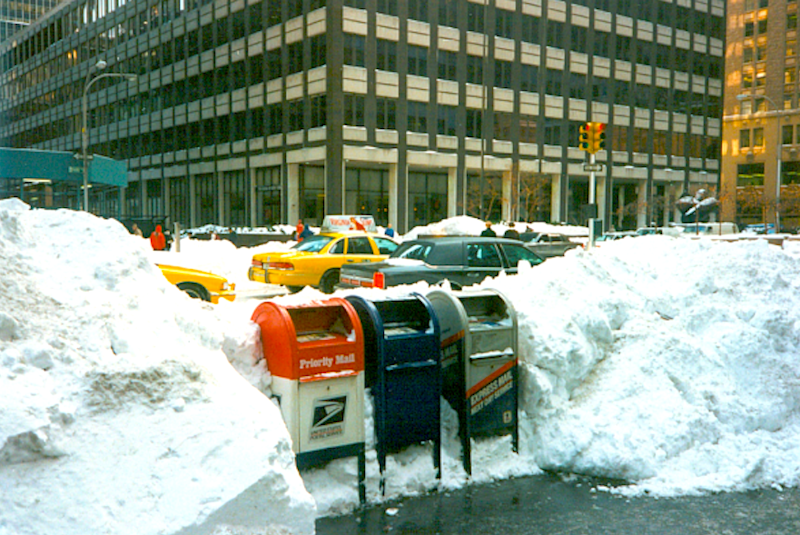Out of Spiral came the boys and their grandmother, covered head-to-toe in cotton and wool and nylon, lined and fleeced, looking for any place to go. Everything was closed: St. Mark’s Comics, Washington Market Park, Socrates, Gee Whiz, Ray’s, McDonald’s, the only Starbucks in town? If that was even there yet—Tribeca was gentrified by 1996, but it wasn’t like the rest of the city now, a glass fortress for the rich. Now, sometime in New York City, November 2023, another Paul and Meredith might meet at a dispensary, or a protest—they wouldn’t be going to the movies or horror conventions or Smashing Pumpkins concerts. They’d still be obsessed with whatever cool thing most successfully courted young people. Then, and now, it took money.
Paul never would’ve heard of The Smashing Pumpkins if not for his sister Veronica, who only heard of them through the independent label Sub Pop, based out of the Pacific Northwest. She bought the “Tristessa” single in 1990 by mail order, and a few months later she saw Billy and D’arcy show up on MTV’s 120 Minutes. They were affable and self-effacing, but compellingly strange looking people, both delivered in color from silent movies. It was no coincidence that they named their first album after D. W. Griffith’s favorite actress, Lillian Gish. She was still alive when Veronica bought that single, but not when she had moved on to 1010 WINS and left her family alone to wonder what happened and why. She thought she’d say, if anyone ever asked, that they should listen to the radio.
Daisy and the boys went looking for something to do, somewhere to eat, something to escape the assumed boredom and fear and isolation after their parents’ delayed return. But the boys didn’t mind at all—in fact, Daisy had a hard time keeping track of them in the snow, as they both ran over and through the snow dunes that dotted Greenwich Ave. and Hudson St. There was no traffic, not even snow plows, and the storm was due to go on for another 36 hours. Their parents would not make it home in time for Daisy’s departure on the 10th. It was January 7, just another snowy night in New York City, 1996.
One night of many for Enzo, who spent his last hours in New York exactly the same as he had through the early-1990s and much of the 1980s: in fleabag hotels, eating bad food, either shooting a movie with people he hated, begging for money for a movie from people he hated even more, or promoting a movie to the people he hated most: his audience. Now, Enzo would be forced to use social media; even if he were Ridley Scott’s age, or Steven Spielberg, or Quentin Tarantino, he’d have to have more of a public presence than he ever did during his lifetime. And he couldn’t have done it. Enzo never would’ve stood for awkward photoshoots and roundtable discussions posted on YouTube. He probably never would’ve made a film.
But this was a different era. Daisy caught up with the boys and held their hands as they continued walking through the dunes of Tribeca.
—Follow Bennington Quibbits on Twitter: @BenningtonQuibb

